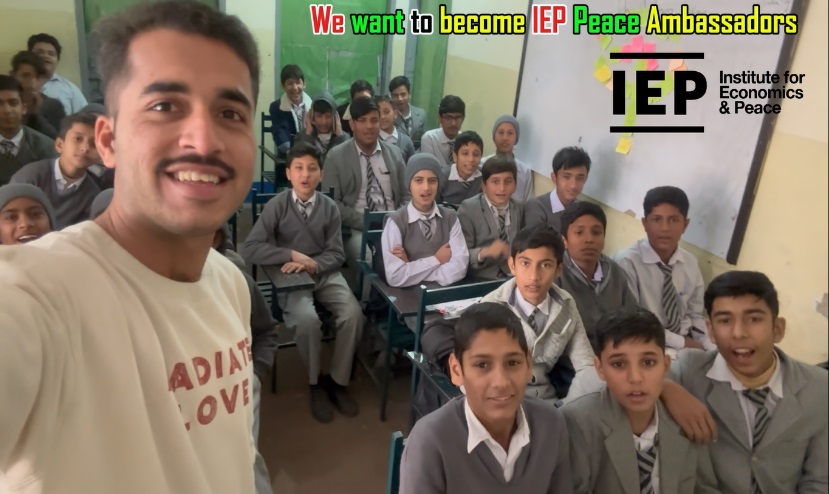
When I walked into the classroom at Strong Base Model School in Islamabad, I carried more than just lesson materials, I carried the hope of a nation that has stood steadfast against the shadows of violence. Growing up in a Pakistan that has resisted the forces of terrorism, I learned early that peace is not an abstract ideal reserved for diplomats or distant leaders. It is a promise written in every handshake, every listening ear, and every act of kindness we offer to one another.
That afternoon, I invited the students to join me in the Peace Tree Activity, a simple exercise, yet profound in its implications. Each child wrote on a paper leaf one thing they could do to bring peace closer: “help a neighbor rebuild after a flood,” “speak up when someone is bullied,” “share water with a thirsty traveler.” As we affixed these leaves to our paper tree, I saw their eyes light up with the realization that peace grows from our own hands.
I shared a personal story: last year, in the aftermath of a devastating attack in Peshawar, I volunteered at a relief camp. I watched families who had lost everything extend their hospitality to strangers, inviting us in, offering tea and biscuits, insisting we rest. In that small tent, amid grief and loss, I saw the truest form of resilience and compassion. Their courage reminded me that even in the darkest hours, our collective humanity can shine brightly.
Throughout Pakistan’s history, we have carried the weight of conflict, yet we have never lost our capacity to hope. In Swat District, I met a group of young women determined to rebuild schools damaged by violence. Their laughter as they painted classroom walls in bright colors spoke louder than any slogan. Their actions taught me that peace is not silence; it is the sound of community working, dreaming, and healing together.
Why does this matter to you, readers? Because peace is not a distant shore we will someday reach, it is the first step we take today. Whether you are a student, a teacher, or a policymaker, your choices ripple outward. When you choose empathy over apathy, inclusion over exclusion, understanding over suspicion, you become a builder of peace.
To my fellow educators: weave stories of resilience and reconciliation into every lesson. Let our students see that mathematics can measure the resources we share, and literature can give voice to those who have suffered. Peace education is not an add-on—it is the foundation upon which all learning stands.
To community leaders and policymakers: prioritize the systems that sustain harmony, fair access to education, support families of those affected by violence, and open channels for dialogue across divides. When policies reflect the daily struggles and aspirations of our people, they become instruments of lasting stability.
My commitment is clear: I will continue to stand alongside every Pakistani who refuses to yield to fear. I will bring stories of courage from one classroom to the next. I will listen, learn, and act, because peace begins not in grand declarations, but in the quiet resolve of everyone.
Let us each plant our leaf of promise today, whether it’s a helping hand for a neighbor, a voice raised against injustice, or a moment of understanding offered to someone unlike ourselves. Together, these small acts form a canopy of hope that will protect our communities and strengthen our nation. Peace begins with every one of us, and only through our collective effort will it flourish.
